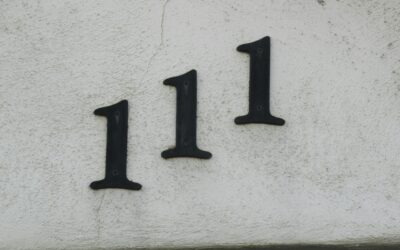We all know anger, and we’ve felt it. It’s a normal human emotion. When we get angry, we often avoid the person because we know once anger gets out of control, it can lead to dire consequences. However, that was not the case with Cain. He killed his brother Abel, and their story became one of the most well-known in the Bible. But why did Cain kill Abel?
The Bible doesn’t tell us why Cain killed his brother Abel. But it does paint a picture of Cain being angry when God rejected his sacrifice and accepted the one that Abel offered. Cain then lures Abel to the field and kills him. Scholars have come up with various theories to explain what caused Cain to become a murderer, with some saying it was because of jealousy and envy, while others believe Abel was a martyr who died because of his faith. Nevertheless, based on the biblical narrative, Cain killed Abel because he had an evil heart and was consumed by self-importance
Who Were Cain And Abel?
Abel and Cain are sons of Adam and Eve. Not much is said about their life growing up except that Abel was a shepherd and Cain was a farmer/worker of the ground (Genesis 4:2).
Why did Cain Kill Abel?
The strained relationship between the brothers started when they brought their offerings to the LORD. Cain presented fruits, and Abel gave the best portions of the firstborn flock (Genesis 4:3-4). Between the two sacrifices, the LORD looked favorably at Abel’s offering, which made Cain angry (Verse 4–5). Clearly, God was not pleased with Cain’s sacrifice because He asked, “If you do what is right, will you not be accepted?” (Verse 7). It also means Cain knew the right thing to do but chose not to obey.
Rather than repent at God’s rebuke, Cain grew angry and killed Abel. Apostle John provides more insight into Cain’s reasons for ending the life of his brother by saying, “We should not be like Cain, who was of the evil one and murdered his brother because his own deeds were evil and his brother’s righteous” (1 John 3:12). Since a person’s actions reflect the state of their inner being, Cain had an evil/wicked heart (Mark 7:21; Jeremiah 17:9).
An evil heart makes a person focus on self-importance. This heart also lacks guilt and shame and exhibits an attitude of entitlement and superiority. Cain’s evil heart and attitude are also seen when God inquires about the whereabouts of Abel, and he responds rudely: “Am I my brother’s keeper?” (Genesis 4:9). It’s because of the wicked heart and the fact that he allowed his sinful desires to rule over him that his anger progressed to murder.
Scholars also believe that Cain killed Abel because of anger, jealousy, or envy. Jealousy was a common theme in the Old Testament, and an example of where we see this is the story of Joseph, who was sold by his brothers into slavery. Some think that Cain and Abel had a disagreement that escalated into murder. This is mostly based on the Scripture that says, “Cain spoke to Abel, his brother” (Genesis 4:8).
Significance of Cain and Abel’s Sacrifice
Did God accept Abel’s sacrifice because of his faith? The Bible says: “By faith, Abel brought God a better offering than Cain did” (Hebrews 11:4). This means he presented a sacrifice that was deemed worthy.
The importance of presenting a sacrifice pleasing to God is seen in the story of Aaron’s sons, who offered the wrong sacrifice and were consumed by fire. This implies that God’s acceptable form of sacrifice or a way of reconciling with sinners is through a life laid down as a sacrifice. We see this in the New Testament through the story of Jesus, who was led like a lamb to the slaughter (Isaiah 53:7). God offered Jesus as the ultimate sacrifice for our sins (Romans 3:25; 1 John 2:2).
In the story of Cain and Abel, God also identifies sin and states, “If you do not do what is right, sin is crouching at your door; it desires to have you, but you must rule over it” (Genesis 4:7). YHWH graciously allowed Cain to make things right and even warned him that sin was already crouching at the door ready to pounce. If Cain had corrected his mistake when God pointed it out, it wouldn’t have led to greater crime and worse consequences.
The lesson we get here is that the same God who gave Cain a chance to get right with Him is the same one who extends His kind offer of forgiveness to us (2 Corinthians 7:11; John 1:9). All we need to do is repent, do what is pleasing to God’s eyes and resist the devil by standing firm in the faith (1 Peter 5:8-9).
God’s warning to Cain that “sin is crouching at your door” is also restated in the New Testament, which warns that “the devil prowls around like a roaring lion seeking someone to devour” (1 Peter 5:8-10). If we don’t listen to God’s warning and atone for our sins, it will master us and lead to far worse consequences. Even when lured by worldly desire, we must remember that God doesn’t tempt anyone, more so with evil. Instead, we are tempted by our desires, and if we are not careful, it turns to sin and eventually death (James 1:15).
What Was Cain’s Punishment For Killing Abel?
After killing Abel, Cain was cursed to be a restless wanderer and could not work the ground (Genesis 4:11–12). Cain was also aware that by killing Abel, he had done something unforgivable and there was a chance that his family was also going to kill him. So, God gave Cain a mark that would protect him from being murdered by others and gave a stern warning: “Anyone that kills Cain will suffer vengeance seven times over” (Genesis 4:15). After he was banished, Cain went on to settle in the land of Nod, got married, and had a son named Enoch (verse 16–17).
Conclusion
The story of Cain and Abel is popular among Christians. It tells us how Cain killed Abel and earned the title of the first murderer in the Bible. However, we are not told the exact reason why he killed his brother. Some scholars think Abel provoked Cain, while others believe jealousy was the motive for murder. Some see Abel’s death as a testament to his faith. Although we might not know the reason Cain killed Abel, the story warns us about sin and is a reminder that evil is always nearby, waiting to strike.




